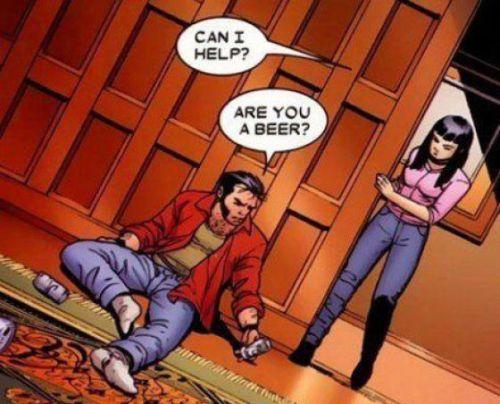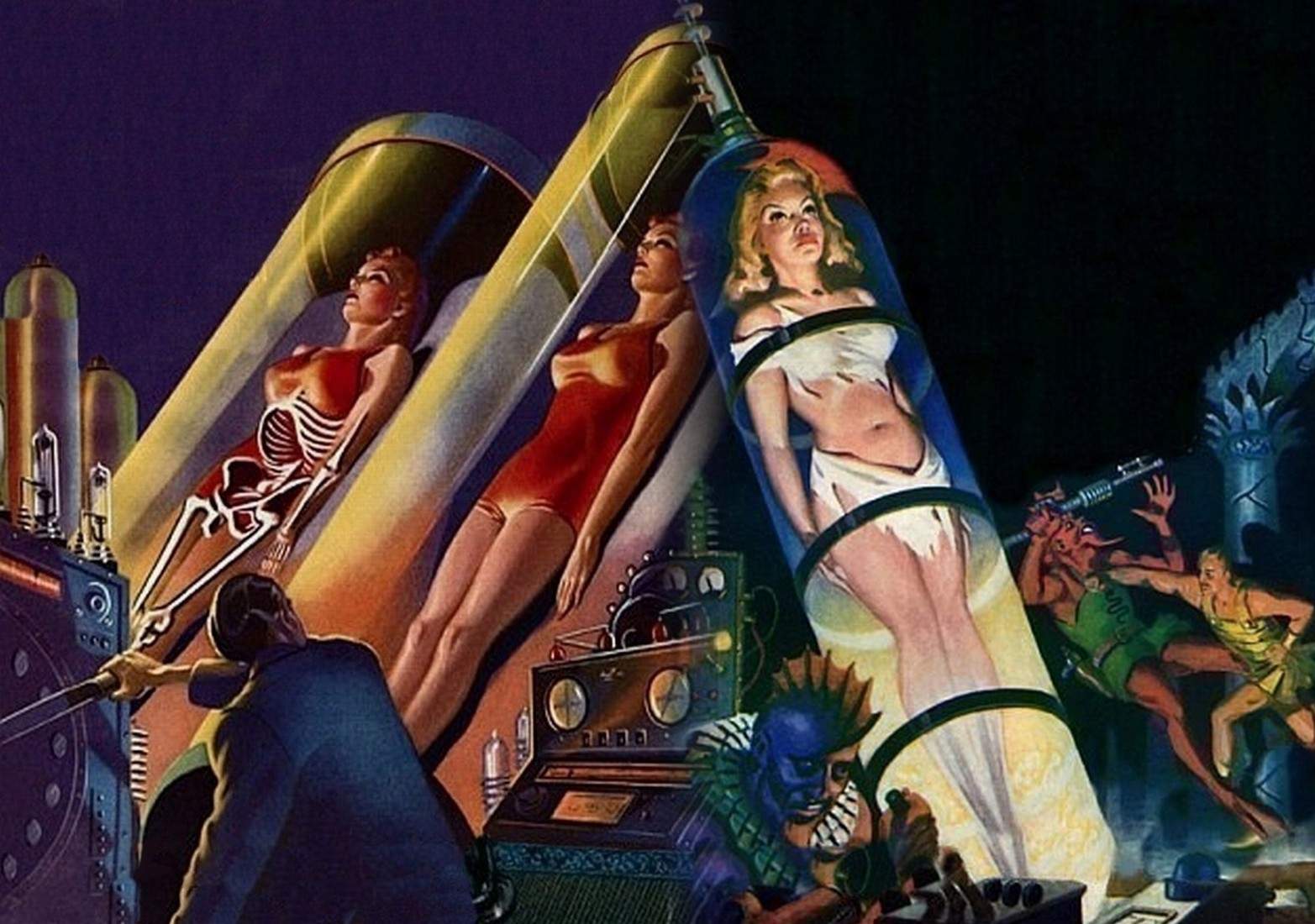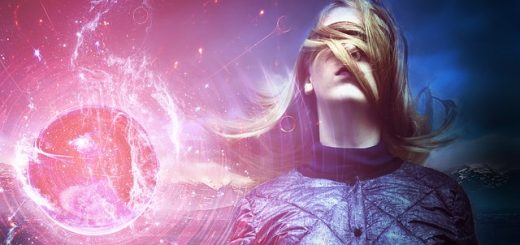Solitude fortresses by Eric A. Howald
Solitude fortresses
by Eric A. Howald
Tony sloshes remnants of a vodka sour around the ice in his glass. It creates just enough clatter, draws the attention of the bartender.
The redhead. The one who will have a limo waiting for her in the rear of the bar at the end of her shift. Tony is still uncertain whether he’ll be waiting for her inside.
The air changes – like it always does, has, and will – the moment Clark enters. He inhales the beer sweats, the sweet meat of roasted rabbit leg on the small plate in the darkened booth in the back corner.
All of it crowded out by the scent of urinal cakes.
Smell is the one supersense he’d gladly relinquish.
Clark removes his fedora as he approaches the man in the Yves Saint Laurent suit. Tony would be out of place in this city anywhere other than the LexCorp cafeteria.
“I can see your liver right now,” Clark says, “Want a visual?”
Tony: “That’s a fun party trick.
It make you many friends?”
Clark: “A warted sirloin.”
“Thanks,” Tony deadpans. “I think.”
Clark: “I’m just saying.”
Red makes her way down the bar toward Tony and Clark.
Tony: “Another of these for me.
A G&T for my friend. Hold the G.”
Clark: “Actually, I’ll take a Manhattan, thanks.”
Red smiles at both men, turns to the shelves behind the bar, selects bottles, begins to pour.
Clark: “When did you fall off?”
“Six weeks ago. There was a thing.”
“Pepper?” Clark guesses.
“I wish. No, just another problem that I couldn’t make disappear behind a pile of money, or a tin man’s suit.”
Clark: “World’s full of them.”
“Tell me about it,” Tony concedes.
The pair wrap themselves in the silence that sweeps over them. Red turns around, drinks in hand.
Tony: “On my tab, thank you.”
Glasses clink. An auburn ponytail swishes across the silk of a vest. Tony thinks about the limo,
swigs his drink in a single tilt. Clark follows suit, but more slowly. As the drink slides down the back of Clark’s throat, hypersensitive cellular defenses incinerate the alcohol. He’s never gotten so much as a buzz. Only more reminders he’s forever chasing mortality.
Clark: “What happened?”
Tony: “A letter.” The three vodka sours already in him keep his eyes from pooling. “A mother. Some kid’s mom. Her son thought all heroes were infallible. Like gods.” Tony picks up his glass, realizes
it’s empty, swings it toward Clark.
Clark: “You know that’s not true. Not possible. Not by half.”
Clark removes his horn rims. Tony, not for the first time, marvels at how little it takes to conceal one’s self.
The bar is nearly empty now. Tony checks his volume, “He discovered I wasn’t perfect.” He spins his glass in the condensation ring on the bar. “Thought it was permission. Decided if I could, he could. Went on a bender, poisoned himself. Spent two days in a coma before mom pulled the plug.” He pauses. “Seems she wrote the letter the day of the funeral.”
Clark exhales. His glass turns frosty, but he warms it again with a glare.
Clark: “Shit.”
Tony motions to Red who is at the end of the bar counting minutes, trying to look busy folding and refolding towels. She sets to work on another round. Tony decides then he’ll be in the limo. Waiting.
Red delivers the next round, reaches under the bar to a radio. Alt rock replaced by Thelonious Monk. Neither man speaks for a while as percussions rise and piano slips into a jagged backbeat. Tony opens his mouth to speak when a trumpet erupts from the speakers.
He let’s the thought fade.
Clark: “We can’t catch them all. They fall, we fall – or stumble – and they see us as having no excuse.” Tony ruminates on this and takes a drink. He wonders how many vodka sours it would take. How many have come and gone. The numbers. Realizes it doesn’t make a damn difference.
Clark: “You know I have to keep an entire city in a bell jar?”
Tony: “Might have heard something about that.”
Clark shakes his head, “An entire city. Feels like a metaphor.”
Tony: “How so?”
Clark stares at his reflection in the bar mirror, organizes thoughts. “My presence here, on earth. No one
knows what to do with that. I get out far enough, I picture having placed the entire human race under a jar. They look up, see me, know they can’t compete. Give up. Or worse, set out to kill me.”
Tony thinks on that. No metal suit will ever make them equals.
Tony: “Yeah, but.
We weren’t doing so hot before you either.”
Clark: “But what hasn’t happened because of me? Would people strive harder? Would they be farther along?”
The billionaire, playboy, philanthropist has no answer to that.
Clark: “I met this guy once. He had a condition, synaesthesia. He saw numbers and words as colors.
Sounds translated into lights. Found him trying to recreate the experience on the walls of a church at the corner of Siegel and Schuster.”
Tony: “I know that one. Big place, lots of gilt on the architecture.”
“That’s the place. He told me that men’s and women’s voices appeared in separate places in his field of vision.”
Tony, rolling his eyes: “Let me guess. Yours was unlike any he’d seen before.”
Clark: “Actually, no.
Said mine was the same as anyone else’s. Surprised both of us.”
Tony who, five minutes ago was sure this whole idea had been a mistake, feels his jaw sag a bit. Snaps it back quick as he notices.
Clark puts a hand on Tony’s shoulder, “It’s not about being a hero. It’s living heroically. Righting
what’s wrong with ourselves. Finding the version that’s true as possible.”
Clark looks down at Tony’s glass. Tony shrinks from the grip, but Clark holds tight. Red passes by, it’s last call.
Clark: “There’s no better version of you at the bottom of that glass. It wasn’t at the bottom of the last one. You won’t see it through the bottom of the next.”
Tony: “Nothing that hasn’t occurred to me already, thanks.”
Clark: “But you thought about it.
On some level, that means you know it.”
Red drops off the bill with Tony’s black credit card. She’s written, “Thanks,” a winking smiley face
underneath it. Tony scrawls a wavering line, after doubling the total for her tip. He thinks about Red, and the kid. All the things he won’t see, the people he won’t meet, the heroes he’d discover. The ones that would still – somehow – let him down.
Clark finishes his Manhattan. Knocks the bottom of the tumbler on the pine. Red reaches for the radio, Monk’s last few bars reverberate in empty space.
Tony: “Thanks for meeting me. Honestly.”
Clark: “Anytime. Thanks for the drinks.”
The two men embrace. Tony can tell Clark is holding back, but Tony can’t discern if it’s for safety or by choice. Probably wouldn’t be easier were he sober.
Clark, whispering: “What I’m trying to say is that the world needs both of us. And all other kinds of heroes.”
He watches Clark depart. He’s back in Kent mode. Slouching just enough to throw off suspicion. Red picks up the receipt. Her eyes grow two sizes.
Tony: “How soon you closing up?”
Red: “’Bout twenty minutes. Just need to count the till.”
Tony: “There’ll be a ride out back. Give the driver your keys. He’ll arrange getting your car home.”
Red draws back, throws him a skeptical look.
Red: “No strings?”
A momentary hesitation then, “No strings.”
Red: “Thank you, Mr. Stark.” A knowing grin.
Out in the frigid night, Tony draws his coat close, flips up the collar. He arranges the limo on his handheld. Walks three blocks to the gray Town Car. Jarvis already has the seats warmed, the temperature a soothing seventy-seven.
Jarvis: “Have a good evening, sir?”
Tony: “Not the worst ever.”
Jarvis: “Home then?”
Tony: “Not tonight, my friend.
Let’s just drive a while.
I need to think.”
***
Nine minutes ago:
Clark steps through the door of the bar. Luckily, the streets are mostly empty at this hour on a weekday. A couple holding hands walks away from him. Three college kids on the corner across the street are all looking at their phones, faces illuminated by LCD glow. Funny how phones still provide him cover, he thinks.
A blur and he’s up, up, away. Out over the city lights, he sheds his suit, watches shirt, coat and slacks fall away in thin air. Blue and red fabric from an extinct planet suck at his skin. His feet are bare. In seconds, he’s suspended over the plains of Kansas. The lights below him: sparse and winking out with reassuring uniformity.
An image manifests in his mind. His father on the combine kicking up clouds in his wake. Specks of dirt sticking to his own skin, the feel of the grit as he trails the machine, chasing down a dust devil. In everything he’s seen, every disaster averted, nothing ever made him feel so purely human. The life of a farmer wouldn’t have been easy, but it is the one he knows best.
He lives two lives, but ones he can’t trouble him most. He puts them in jars in his mind, pulls one off the shelf at moments like these and watches other Kal-Els navigate existences mundane and extraordinary. They are endless – fascinating – the ones who don’t have to be a hero to superheroes.
He looks east, watches Tony walk away from the bar to a car. A deep cobalt limo arrives where the evening began. An explosion to the west draws his attention back to his path. La Plata, Colorado.
Another blur, and he is gone.
* * * * THE END * * * *
Copyright Eric A. Howald 2015






Great read, love the artwork, keep it up!!!